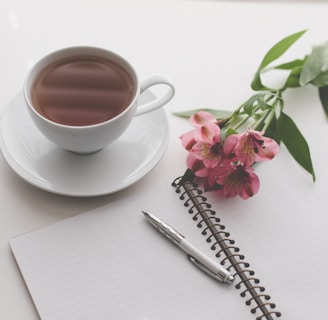When Is The Best Time To Be Creative?
Passion and neuroplasticity vs. inspiration in creativity.
WRITINGCREATIVITY
What makes a writer, a writer? Or an artist, an artist? Primarily, their creativity. But then, the world has more creative people than those who have actually pursued their creative arenas and produced something worth remembering. Why is that so?
Why are some people more creatively successful than others? Is it because they are constantly inspired by something and own a think-tank that overflows with the muse? Is it because their well of stories and thoughts never gets dry? Or is it because they put in more effort and prioritize their art over everything?


Passion and creativity
Creative people who realize that they cannot do without what they are capable of, pursue their art. And creativity bursts forth. You cannot say when the muse strikes you.
You cannot predict what elicits a certain idea in your head. So, the way to capture it is to be ready all the time. Passion doesn’t wait for inspiration. Writers better keep some sort of idea-recording tool — a notebook and pen, a note-making app on your phone or other gadgets or a voice-recorder if you like to speak out your thoughts.
Words get strung in the least way we expect and that string of words could portray a whole new world when you look at it later. I remember using such bursts of thoughts in my fiction books later.
“Creativity doesn’t wait for that perfect moment. It fashions its own perfect moments out of ordinary ones.” — Bruce Garrabrandt
Another aspect of creativity is its adherence to habit. Let’s take a glimpse at that — about habituation and prioritization.
Neuroplasticity and creativity
If you wait for inspiration to strike, you might wait a bit too longer than necessary. You might do much better when you make it a habit to sit and write, not to push yourself too hard but to let yourself experiment, make errors and rectify them.
This is because our brain (where essentially all thoughts and emotions originate from) is neuroplastic. Means, you can mold it into just about everything you want to be.
Habituation and prioritization
These are the two processes that press the buttons when you need to knead and mold your brain into what you want it to perform. The brain programs itself into acting upon what we make ourselves do. The more you do and think something, the stronger those synapses grow and the more it becomes a part of who you are.
The changes in neural pathways take place when the brain resorts to synaptic pruning. This is the process by which the brain deletes the neural connections (there’s one for every thought) which are not necessary or useful for us anymore, thereby strengthening the necessary and useful synapses and inculcating what is important to us.
For example, when you decide to work out, you just decide it, think about it and maybe get motivated for a day or two. You slip back to your sedentary state in no time.
But at the same time, instead of planning to work out, if you just start doing exercises, your brain runs the command accordingly — hey, she is exercising to stay fit, you better stay away from junk food or refined sugars. The bottom line is — just thinking or planning doesn’t really cut the deal. Acting does. Your brain equips you to habituate something if you do it, not if you just think about it. Thinking precedes action anyway.
So you need to begin acting on your thoughts towards your goals. This works for writing and creative pursuits in general because habituating and prioritizing breeds consistency. And consistency is what eggs are in a cake recipe — a binder. Consistency binds together your efforts into one journey and destination, and subsequently, success.
So, when is the best time to be creative?
The best time is now — now when you are idling and poring over social media because you are uninspired.
The best time is now — now when you are constantly making guilt trips because you have not really felt like writing a new page.
The best time is now — now when you stall on opening your work-in-progress (or rather, regress) just because you have not felt inspired by your life or surroundings.
Your inspiration lies right in there — where you have written some words and left them to fend for themselves. Your inspiration dwells in those pages that are waiting for continuity. It is in there that you wove a web of beauty, that’s where you need to get caught again.
Within you. Within your art.
Sometimes, you need to carve out time from whatever mood you are in, and set to work. The mundane moments might as well be transformed by bringing on some words to the page, instead of waiting for the moments to become extraordinary by themselves!
This article was first published on The Brave Writer on Medium.